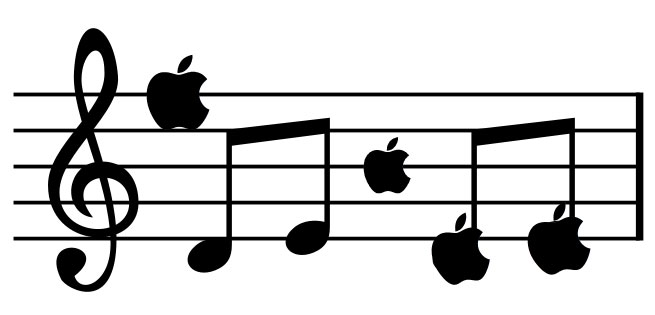Apple is finalizing deals with two major record labels to launch its own streaming music service with lower royalty rates than competitors already in the space, according to a recent CNET report.
[aditude-amp id="flyingcarpet" targeting='{"env":"staging","page_type":"article","post_id":711263,"post_type":"story","post_chan":"none","tags":null,"ai":false,"category":"none","all_categories":"business,media,","session":"A"}']The service is expected to be a smart radio offering (as opposed to providing songs on-demand) that will be freely available across the globe and will complement Apple’s iTunes music store. If true, an Apple-branded smart radio service could also overcome one of the largest obstacles that other streaming music providers (Slacker, Pandora, and to an extent, Spotify) have: keeping content costs down.
The report indicates that Apple will be paying a lower royalty rate than other digital music services. This is a big deal because companies like Pandora have cited unreasonably high royalty rates as the reason they’re unable to generate a significant profit, despite consistent audience and revenue increases. On top of that, music industry organizations like SoundExchange (the group set up by the government that manages digital royalties for the industry) are asking Congress to revise current laws so that terrestrial (aka traditional AM/FM) and satellite radio services start paying as much as digital services do.
AI Weekly
The must-read newsletter for AI and Big Data industry written by Khari Johnson, Kyle Wiggers, and Seth Colaner.
Included with VentureBeat Insider and VentureBeat VIP memberships.
So how is Apple able to negotiate lower rates with the labels? According to CNET’s sources, Apple is offering those labels a cut from multiple streams of revenue, which haven’t yet been identified. I previously theorized that Apple could do this by giving people a specific number of custom stations and charging them to create more stations. Apple could also put a limit on the number of times you can listen to a song in a day and make that data obvious to the listener so they’re prompted to buy those songs. Of course, Apple can always split revenue on audio advertising that plays between songs.
But this creates a huge problem when it comes to the future of streaming music services as separate businesses. If Apple is successful, it paints the picture that you must be a huge technology corporation with an influential digital store to get royalty rates low enough to make money. That’s dangerous because the majority of streaming music services can’t offer the incentives Apple can.
Illustration by Tom Cheredar
VentureBeat's mission is to be a digital town square for technical decision-makers to gain knowledge about transformative enterprise technology and transact. Learn More

